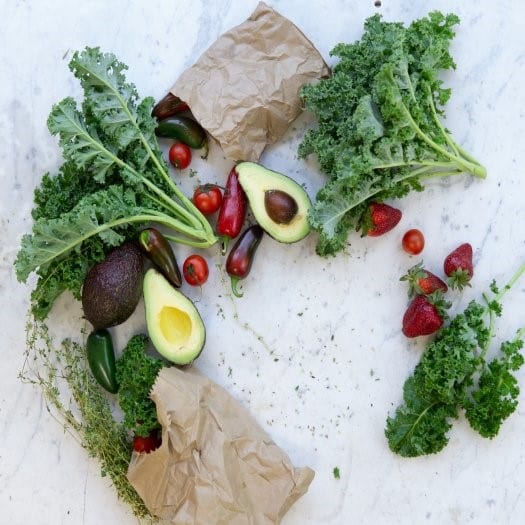Your questions answered from Cancer Preventive Lifestyle Behaviors: Why You Should Talk to Your Clients Now
How do you balance recommending following these guidelines without promoting fear/anxiety?
I think if you deliver the information in a way that is empowering, you can minimize fear. For example, sharing that almost 50% of cancer cases could be prevented through nutrition, physical activity, maintaining healthy body weight, using sunscreen, and not smoking is empowering.
What do you classify as red meat?
Mammalian muscle meat – beef, pork, lamb, goat, veal, horse, and mutton (World Cancer Research Fund/American Institute for Cancer Research. Continuous Update Project Expert Report 2018. Meat, fish, and dairy products and the risk of cancer. Available at dietandcancerreport.org., p 11)
Is it the fat in the red meat that is inflammatory meaning can lean red meat be ok?
See recording. No, it is likely heme-iron and other compounds. Heme iron at high levels stimulates the formation of N-nitroso compounds that promote tumorigenesis
Does turkey breast count as processed meat?
According to AICR https://www.aicr.org/resources/blog/bacon-hot-dogs-and-lunch-meat-is-it-processed-meat/ “meat that has been transformed through salting, curing, fermentation, smoking, or other processing to enhance flavor or improve preservation. Most processed meats contain pork or beef, but processed meat may also contain other red meats and poultry”
Do you weave the need for vitamin D sufficiency and reduced risk of cancer? g. serum levels 40-60ng/ml. ?
The recommendation regarding supplements in the webinar was not to use supplements for cancer prevention, as there is not enough evidence to support their use for this purpose. This does not preclude the recommendation to use supplements such as vitamin D for nutritional adequacy.
What about hormone, nitrate-free deli such as Applegate
Please refer to the webinar. There is not enough evidence to recommend nitrate-free meats at this time. N-nitroso compounds have been shown to be carcinogenic and are a potential mechanism for why processed meat consumption increases cancer risk. These compounds can be added to preserve meat, but they can also be formed during cooking or endogenously.
When talking about “risk” for cancer, especially processed meat and colorectal cancer, could you explain where these data are from, how recent, and not only the statistical AICR analysis:
AICR https://www.aicr.org/resources/blog/processed-meat-and-cancer/ Aug 1, 2019 red meat is RR 1.12 per 100 gm/day. Processed meat RR is 1.16 per 50 gm/day (note difference in portion comparison)
A lot of chicken is “processed” and pumped with sodium. How does that figure in?
Fresh poultry is included in the definition of meat, as food derived from animal flesh. However, poultry is not included in the term “red meat,” as defined in the AICR Third Expert Report, or food derived from mammalian muscle meat. Research is ongoing to determine if there is an independent link between poultry intake and cancer risk. However, if poultry is processed by “smoking, curing or salting, or addition of chemical preservatives,” then it would be included in the AICR Third Expert Report definition of processed meats, and thus, the recommendation to avoid.
When you say less red meat, is that ALL red meat or less of the higher fat red meat such as ribs vs sirloin?
The AICR recommendation is to limit all red meat to 12 to 18 ounces per week, regardless of fat content. However, the Third Expert Report notes that this is to allow for the nutritional contribution of red meat while limiting quantity to reduce risk. Thus, consumers should still choose leaner red meats to reduce total saturated fat consumption to reduce the risk of heart disease.
Do any of the studies differentiate between organic, grass-fed meat and conventionally raised meat?
There is research ongoing in this area, but there is not enough evidence at this time to draw conclusions or make recommendations.
Would you recommend chicken and vegetables sausages prepared steam in a pan, not in open flame?
Yes, lower heat cooking methods would be recommended for chicken products as they can form the same carcinogenic compounds, PAHs, and HCAs. Vegetables do not form these carcinogens when cooked, however, we cannot comment on vegetable sausages without knowing the specific ingredients. In addition, some sausages are considered processed meats and the recommendation is to avoid processed meat.
There is very poor evidence for red meat when it’s minimally processed, not overcooked, and in the context of good overall intake and other positive lifestyle factors (removing the confounding variables).
Agreed
Are you familiar with the book Fiber Fueled that just came out? The author is Dr. Will Bulsiewicz.
No, but thanks for the tip.
Any thoughts on meat alternatives on cancer prevention, like beyond burger or other processed meat alternatives.
In practice, meat alternatives made from soy may be a protein substitute for red meat. Current research indicates that soy consumption does not increase the risk for cancer. Some meat alternatives are very high in sodium, however, and more research is needed on the relationship between high sodium intake and some cancers, like stomach cancer.
How does dairy fit into AICR plate?
AICR recommends that if you choose to include dairy in your meals that it make up no more than 1/3 of your plate.
Please refer to the ACIR Third Expert Report for the following information: World Cancer Research Fund/American Institute for Cancer Research. Continuous Update Project Expert Report 2018. Meat, fish, and dairy products and the risk of cancer. Available at dietandcancerreport.org. https://www.wcrf.org/dietandcancer
The AICR Third Expert Report concludes that there is probable evidence that consumption of dairy products is associated with a decreased risk for colorectal cancer. Furthermore, AICR reports there is limited (suggestive) evidence that dairy products may decrease the risk of premenopausal breast cancer and limited (suggestive) evidence that diets high in calcium may decrease the risk of pre and postmenopausal breast cancer. The AICR Third Expert Report also indicates that evidence linking dairy
Photo by Wendy Wei from Pexels.













